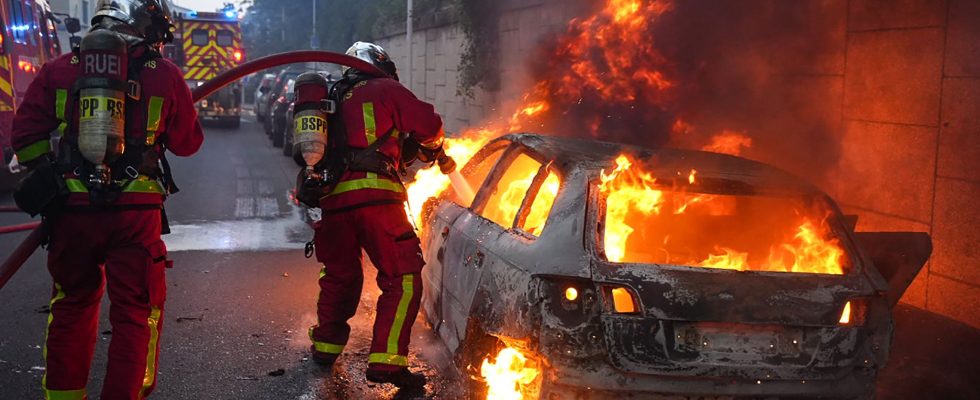This is the case that marked, rather haunted a whole generation of political leaders. On the night of December 5 to 6, 1986, in Paris, after student demonstrations against Minister Alain Devaquet’s bill, Malik Oussekine died of injuries sustained by two aerial policemen. The Chirac government will find it difficult to recover. A few days later, François Mitterrand went to the family home. When he leaves, he is content with a sentence on “the testimony of the nation”. He favors the symbol: at his side for this visit is the Nobel Peace Prize winner Elie Wiesel. The police, and justice: the two leaders were tried at the assizes four years later and sentenced to five and two years in prison, suspended. Before and after the trial, they therefore escape prison.
The death on Tuesday of Nahel, 17, killed during a police check in Nanterre, plunges the country into amazement. A voice whispers to the teenager’s mother to speak of “revolt” while she records a message on the social network TikTok calling for a white march for her son this Thursday. “I hurt my France”, tweets Kylian Mbappé. Emmanuel Macron evokes the risks of “conflagration”.
Because the drama revives other memories. In October 2005, two teenagers, Zyed Benna and Bouna Traoré, died in Clichy-sous-Bois, electrocuted inside an electrical substation after trying to evade a police check. Riots broke out in the suburbs for three weeks, leading the Villepin government to activate a state of emergency for the first time since the Algerian war. The police, and justice: ten years later, the two police officers indicted are released.
Is it time to stir up anger?
A nation has a collective memory. The political class knows that this kind of event marks generations forever, keeping them away from the police. And part of the population retains the impression that justice is not up to the situation. When two pillars of the Republic find themselves thus weakened, the whole community falters on its foundations. Several attitudes are then possible. The most difficult, because the most demanding: not closing your eyes, not having your hand shaking, without giving in to verbal one-upmanship which brings nothing.
The easiest, because vultures are always on the prowl in such circumstances. In the expression “political leader”, there is the word “political”, which perhaps encourages some to think that they have the right to say everything; there is also the word “responsible”, which should confer some duties. Is it time to stir up anger, however legitimate it may be, or to try to contain it? Is it welcome, for a man who has competed in the presidential election twice, to swing a formula like “death penalty” – as Jean-Luc Mélenchon did? “Wearing the uniform of the Republic implies duties. For the police, as for the citizens: investigation and justice”: in the camp of the Insoumis, François Ruffin immediately stands out to make his difference heard. Because adding violence to the violence of a drama rarely contributes to appeasement, but that is perhaps the desired goal.
